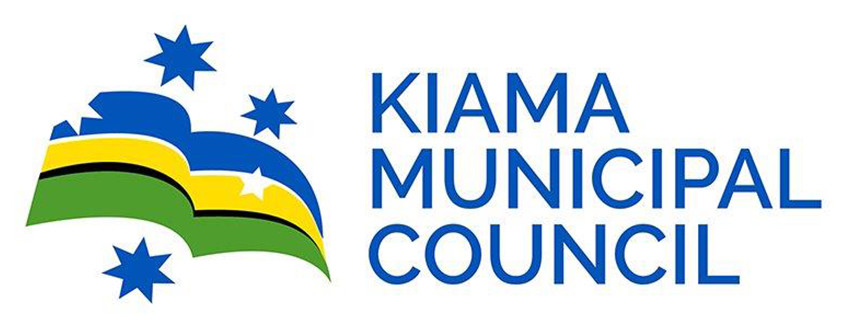By Roger Sleeman – Originally published in GOAL WEEKLY
As Craig Johnston, the most decorated player in the history of Australian football, looks out on the
vast expanse of water in Lake Macquarie, his one thought is how he can leave an everlasting legacy
for our game.
The man who collected 5 English 1 st Division Championship medals, 1 European Cup medal, 1 FA Cup
winner’s medal and a League Cup winner’s medal at the mighty Liverpool F.C between 1981 and
1988, possesses a pedigree and thought process which few can match in Australia.
Ironically, he is still waiting for Australian officialdom to recognise the enormous contribution he can
make for the country to finally make it a world power in football.
If ever there was a time for football’s hierarchy to include Johnston in their long term plan it’s now,
because we may never see the like of him again.
In this in-depth interview with Roger Sleeman, Craig Johnston discusses his thoughts about
Australian football , provides exclusive insights into his remarkable experiences at Liverpool, explains
how he sees the modern game and how he can influence the progress of the Australian game with
the application of his SupaSkills equipment and programs.
ROGER SLEEMAN
Could you describe your present state of mind?
CRAIG JOHNSTON
After all these years in football, I see these young 13 and 14 year old kids at my old high school, Lake
Macquarie, as a mirror image of me and I’m thinking, how I can mentor them to face the struggles
ahead in life.
In my day it was much harder to achieve than now but the game breaker for me occurred when I
saw English football and Pele on TV, and I decided all I wanted to do was to go to England and play
professional football.
It was akin to an Eskimo coming to play Rugby League in Australia.
R.S
What is your current impression of Australian football?
C.J.
In my day there was a lot of prejudice against the game but the A- League seems to be well
respected in the Australian sporting landscape and the game is now accepted as a mainstream sport.
The Asian Cup victory was a testimony to Ange Postecoglou and his players but it was like a false
dawn because it was due to effort and guts which are a hallmark of Australian sporting teams, not
because we had better technique and touch. Being a football purist, it’s the quality of control and
touch on the ball where the craft comes from.
Sadly, we are way behind the rest of the world and Asia in touch, feel and technique which are in an
atrocious state because there is a misunderstanding of the product at coaching level. Furthermore,
there is no accountability and no kpi’s (key performance indicators) like in every other industry.
However, there is a kpi, in that 12 years ago we had a number of players in the EPL,namely
Cahill,Neill, Aloisi Emerton, Kewell, Viduka , Okon and now only Jedinak ,when I believe we should
have many more who could come back and enrich the game’s development after their playing
careers are over.
This is a great disappointment to me and it should be the same for everybody back here.
It’s a major kpi and I’d like to know who’s responsible for it.
R.S.
Could you outline the methodology of the coaching staff at Liverpool and how it differed from Aussie
football?
C.J.
Professionalism, and what was at stake when you upped the odds, because it was winning at all
costs for Bill Shankly who included the fans as family. If you didn’t perform to your best, you let the
family down.
Shankly would have you training in thin shirts, shorts and socks during the middle of December in
the snow while across the way Everton would be training indoor with track suits on.
Train as you play was the motto so when it snowed on Saturday matchday, you were used to it from
4 days of training in the snow and there was always one winner and that was Liverpool
These Liverpool coaches were hardline coaches, they weren’t of the lap top variety.
You had Ronnie Moran, a disciple of Shankly and Bob Paisley and he was like a sergeant major.
.He’d come in and say you ‘re all bigheads and you think you’re clever because you won 2-0 when
you should’ve won by 5 and he would say to me you scored 1, when you should’ve scored 3.
He would tell the players to go outside and get working and he would bark like a drill sergeant. He
was scary and his whole philosophy was never to let egos enter the dressing room or allow players
to ease up.
You’d be leading 3-0 and he’d be up and down the sideline screaming and asking for more.
Unlike today, you’d never see a Liverpool player put his foot on the ball because Moran would
demand the play would always flow.
Egos were completely demoralised by all the coaching staff, not just Ronnie Moran.
Hard men, teaching hard lessons every day, and I don’t see it today.
R.S.
What was emphasised in tactical and playing methods at Liverpool?
C.J.
Know who’s giving you the ball, give him an option and move and give the player you’ve just passed
the ball to an option
A lot of the training concentrated on perfecting one touch football and we were always encouraged
by Bob Paisley to keep the ball moving in the direction you were facing
Our secret was to maintain possession, and provide an option to the receiving player by maximising
movement off the ball.
We didn’t overdo dribbling but let the ball do the work and always tried to keep the ball moving in
the same direction, rather than stopping the flow or passing the ball back which is so prevalent
today where players stand still when receiving the ball.
Dalglish was a great player but he always had 3 options which allowed him to maximise his
effectiveness in creating and scoring goals.
Also, when we lost the ball, we all got behind the ball and hunted in packs to retrieve possession.
R.S
What are your memories of the Liverpool players?
C.J.
I used to say I was the worst player in the world’s best team.
In those days, particularly in the Mersyside derby, the games were so intense, I used to be sick
before a game because you knew it would be like a battle and you knew you’d be kicked and
possibly injured.
However, before one such derby I looked round the dressing room and Dalglish, Rush, Souness,
Lawrensen and Hansen were sitting together and I concluded if I felt sick, how would the Everton
squad feel having to face these formidable opponents.
My role was to win the ball, play it off to somebody in a better position and look for the return ball
to link with somebody else in an advanced position.
As a link man I was invaluable in keeping the ball flowing and that’s why the Liverpool supporters
appreciated my contribution.
At that time I was regarded as the fittest player in English football, if not the world, which was
confirmed in a radio interview with Grobelaar and Hansen.
Dalglish may have been the creator of many goals and Rush a prolific scorer but I also brought real
energy to the game.
You talk about the great Liverpool players and naturally Dalglish, Souness, Rush and Hansen come
straight to mind but that man, John “Digger” Barnes, was given a gift by God to do incredible things
repeatedly with the ball at will.
You could get Dalglish and Rush to hit the cross bar 5 or 6 times out of 10 but Barnes could hit the
right side or left side of the cross bar every time, if you asked him.
He could go past players at will but in some ways never fulfilled his true potential.
Speaking of current players, I wish Luis Suarez had played with me because he has the ability to
make his team- mates lift their game by 3-4% the way he throws himself around and challenges to
win balls which would seem impossible to the average player.
I believe he is the greatest foreigner to play the English game which was confirmed by his amazing
goal tally when Liverpool almost won the EPL in 2012/13.
R.S.
Graeme Souness was your mentor at Middlesborough and such a key figure in Liverpool’s run of
success in the 80’s.
Can you give an insight into the great man?
C.J.
Today when you tune into a TV broadcast, Souness is far and away the best expert commentator
because he’s been there and done it as a manager and player.
He was a hard man on the pitch with the most amazing touch and vision and a born leader.
When he walks into a party, the music stops as his presentation is immaculate.
He was fearsome on the pitch like a Scottish Braveheart and would take everything personally so the
opposition would be wary not to confront him.
He was one of the main reasons, we one all those trophies
R.S.
The creation of your SupaSkills equipment and program is a first in world football.
What has been the reaction to its overseas?
C.J.
I had a positive reaction from the CBF (Brazilian Federation) when Dunga and Rinaldi first saw it and I
spent 8 years demonstrating to FIFA and technical heads of Germany, Spain, Italy, France and the
UK.
You have to appreciate, it’s a direct snub to these people that an Aussie should come up with such a
standardised measurement of player performance and in the case of FIFA they’d never sanctioned
an independent coaching program because once they’d done that, they’d have to endorse the Pele,
Beckenbauer and Platini methods for example.
Consequently, at a meeting with Sepp Blatter, I had two minutes to show how it worked so I drew up
a penalty area with the standard 44* 18 yards and explained the basic standardised measurements
of control, pass, dribble and shoot which encompass the SupaSkills program . Blatter described me
as a bit of a genius and said he would endorse it and contract it.
I conducted a session with the Australian squad split into two groups under Frank Farina and
Graham Arnold in 2004 and it was a great success but for some reason it wasn’t adopted in Australia
To this day, despite 2 meetings I had with David Gallop in London 3 years ago , it still isn’t used here.
This is despite the fact the Brazilians love it, Jurgen Klinsmann is most interested and the EPL may
adopt it.
Even UEFA with 54 member countries could use it, simply because there is no standardised skill
measurement program available like this in world football.
It’s all about more kids, playing more football, more often because of the applications and
interactive facility built into the program.
R.S.
With your amazing playing record and the recognition you receive round the world, can Australian
football ignore you any longer?
C.J.
I don’t know because I’ve offered my services to David Gallop and he never got in touch with me
after our initial meetings in London.
I’m not looking for a job but my main motivation is I’m a proud Aussie and I’d like to help football
development, particularly at grass roots level.
There is a basic misunderstanding of the product because it should be about the touch and feel of a
player on the ball. In Australia kids don’t do enough of it and as I have said, there is no standard of
measurement applied to test a player’s progress.
If we don’t watch out, in years to come the world will leave us behind, particularly the Asians who
are putting such large resources into football development.
R.S .
Would you work in Asia?
C.J.
I’ve already had offers and why wouldn’t I share my wisdom but I don’t have to live there.
Ironically, I’ve been trying for 20 years in Australia to get my ideas across and nobody is listening.
I did it in the Middlesborough carpark and proved that the more you use the ball, the better player
you can be.
It’s this repetition which stops a player making mistakes and results in higher ball retention.I want to
go out into the community with my test and measurement system (SupaSkills) and assist kids to
reach much higher levels in the game.



